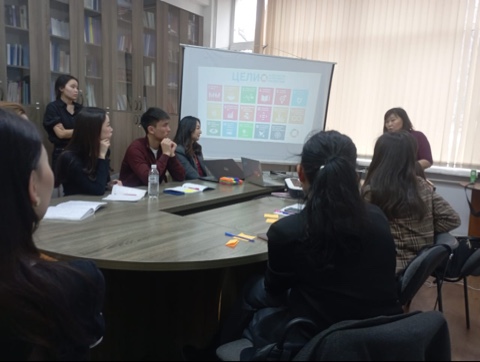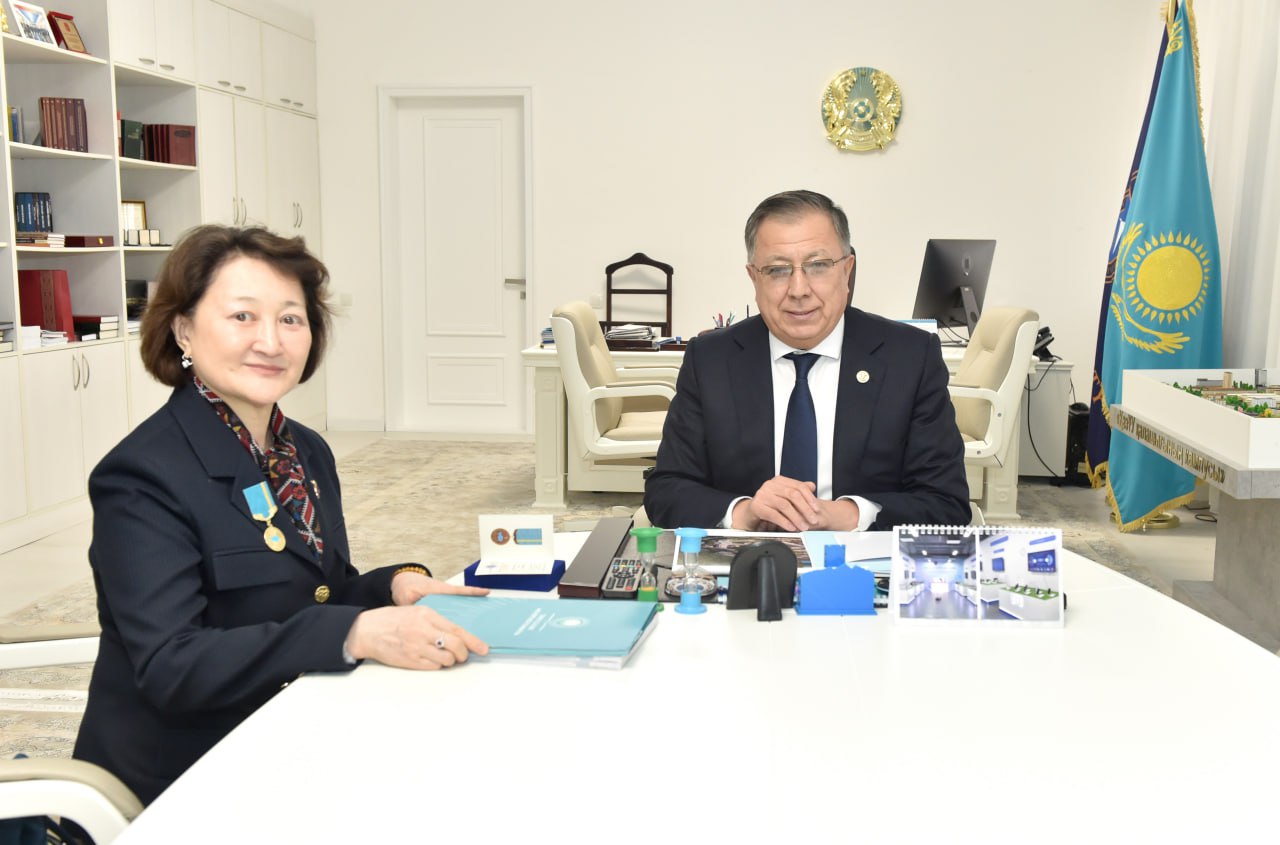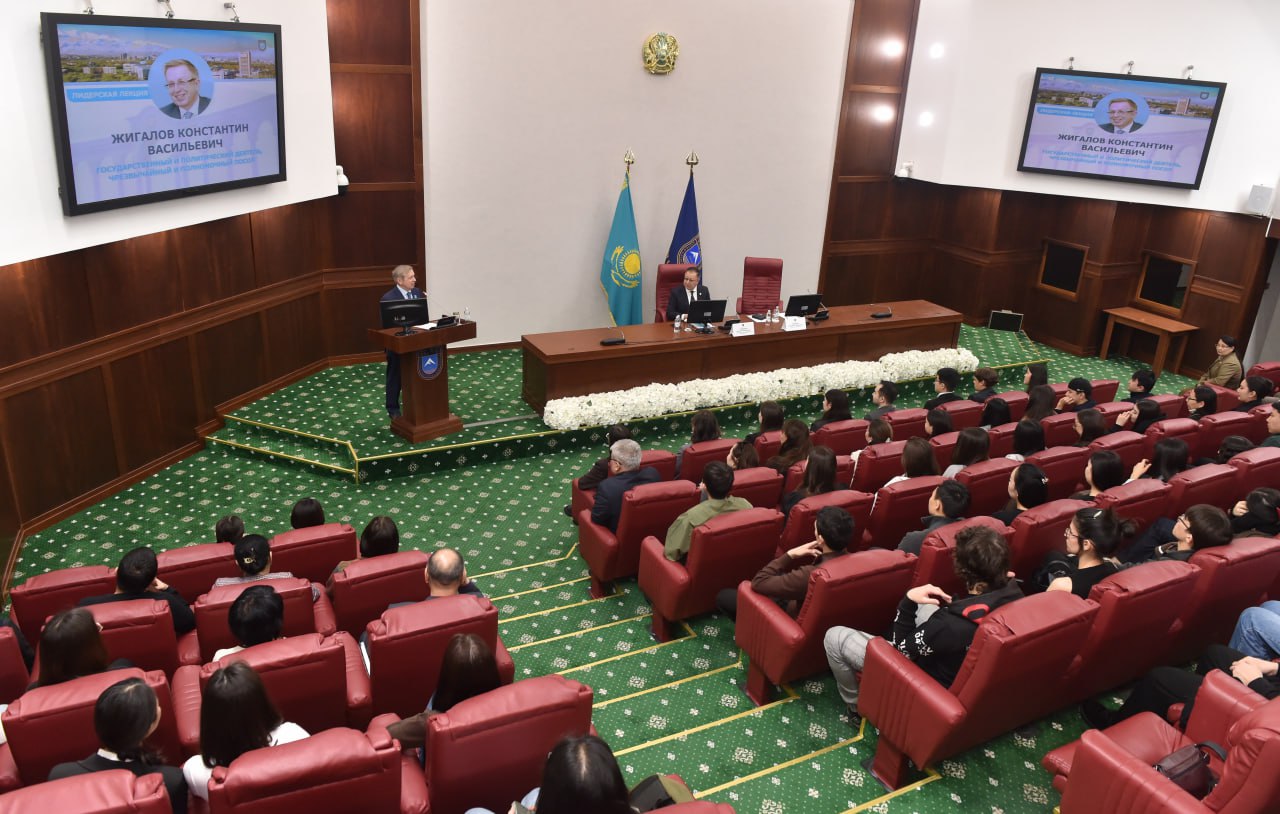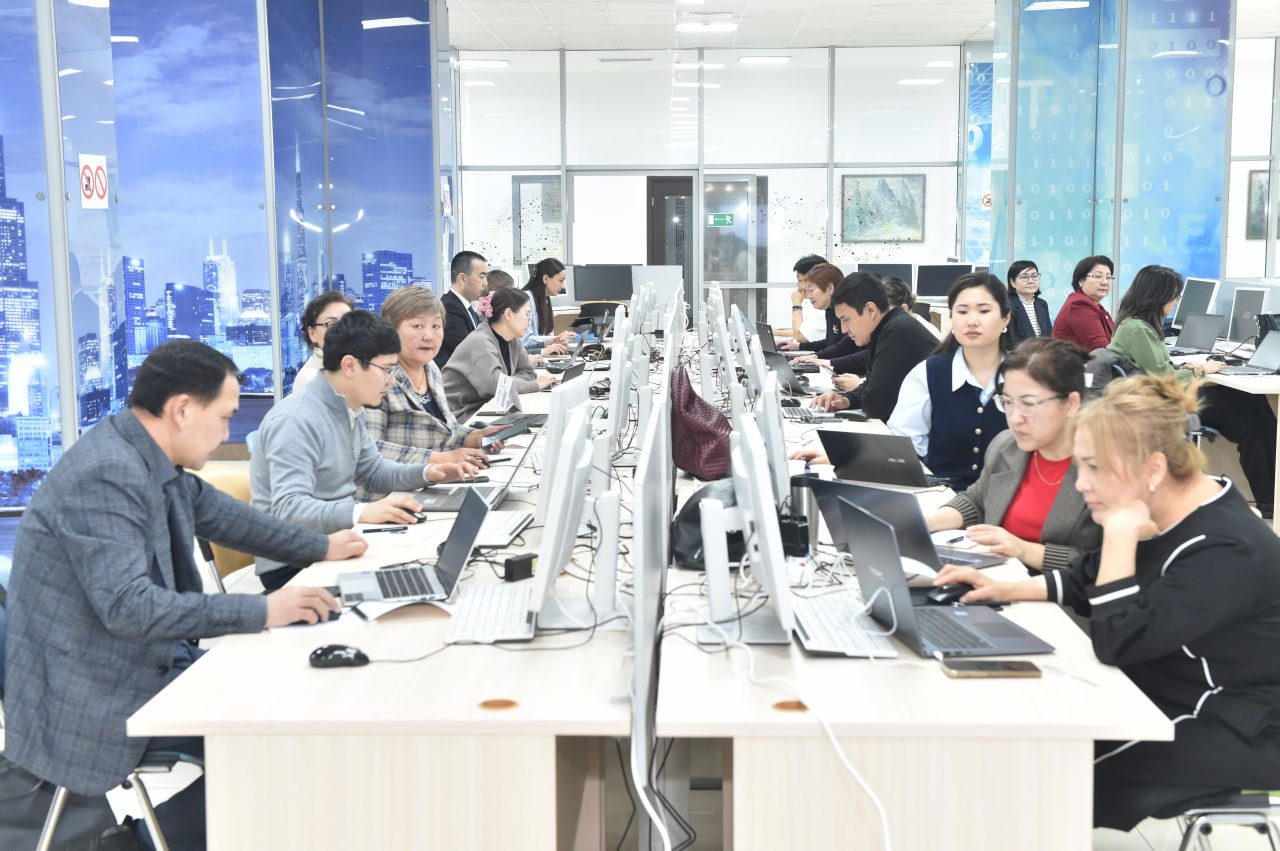- Main
- News
- At the Al-Farabi Kazakh National University, within the framework of the SDGs (Gender Equality and Reducing Inequality) and the implementation of policies to combat discrimination and harassment, a guest lecture was held by the Advisor to the Minister of Labor and Social Protection
At the Al-Farabi Kazakh National University, within the framework of the SDGs (Gender Equality and Reducing Inequality) and the implementation of policies to combat discrimination and harassment, a guest lecture was held by the Advisor to the Minister of Labor and Social Protection

On February 26, the Department of Sociology and Social Work and the Center for Sociological Research and Social Engineering organized a guest lecture within the framework of the SDGs (Gender Equality and Reducing Inequality) and the implementation of policies to combat discrimination and harassment at the Faculty of Philosophy and Political Science of the Al-Farabi Kazakh National University.
The speaker of the event was Begalieva Zakhira Ongarbaevna - director of Public foundation “Competence Development Center ITeachMe.kz”, outside consultant to the Minister of Labor and Social Protection of the Population of the Republic of Kazakhstan, member of the Coordination Council in the field of social protection of persons with disabilities, as well as the author and director of international and republican social projects.
The lecture focused on “Ethics of Communication with Individuals with Disabilities and Appropriate Terminology, as well as State Support within the Social Sector.” During this presentation, several key aspects were thoroughly examined and discussed.
- The issue of implementing comprehensive programs aimed at ensuring equal opportunities, including policies to combat discrimination and harassment;
- Issues of state support in the social sphere, including professional retraining, social protection and inclusive initiatives;
- Basic principles of correct communication with people with disabilities;
- Various models of society’s attitude towards people with disabilities (charitable, medical, social and legal).
The lecture aroused interest among students, teachers, and social sector specialists. Participants actively discussed the importance of correct terminology, the need to eliminate barriers for people with disabilities, and the role of the state, NGOs, and businesses in developing social policy.
The lecture was productive and interactive, contributing to a deeper understanding of inclusive practices and society’s social responsibility.
Organizers of the event: I.S. Sarybaeva, D.A. Aryn, G.A. Kenzhakimova



